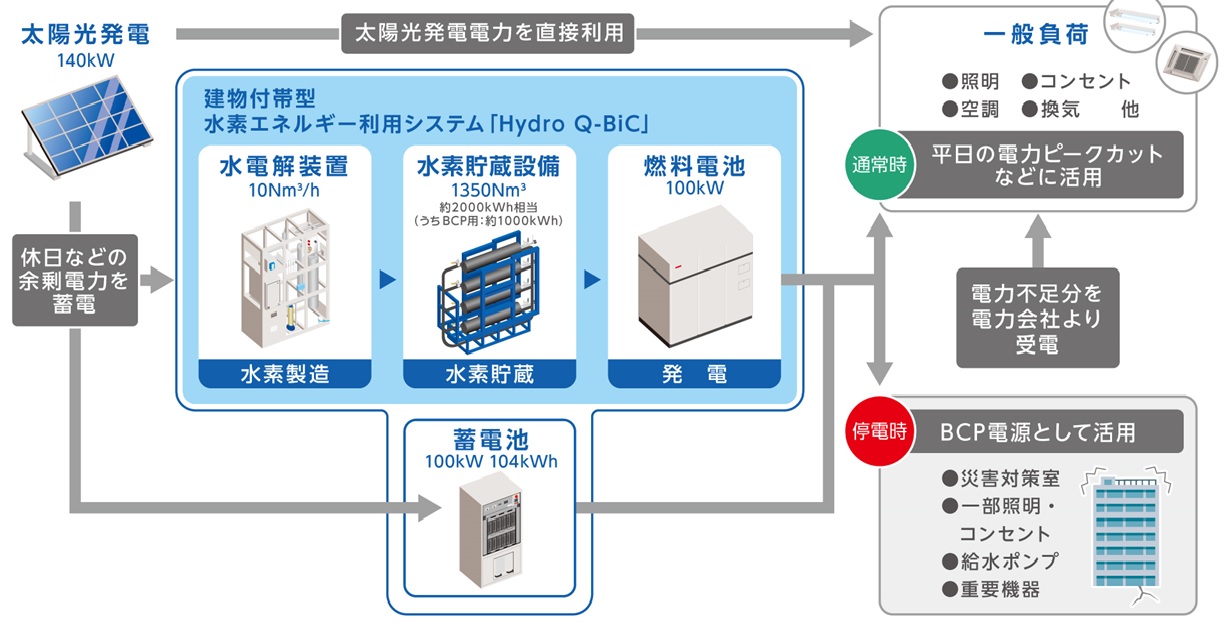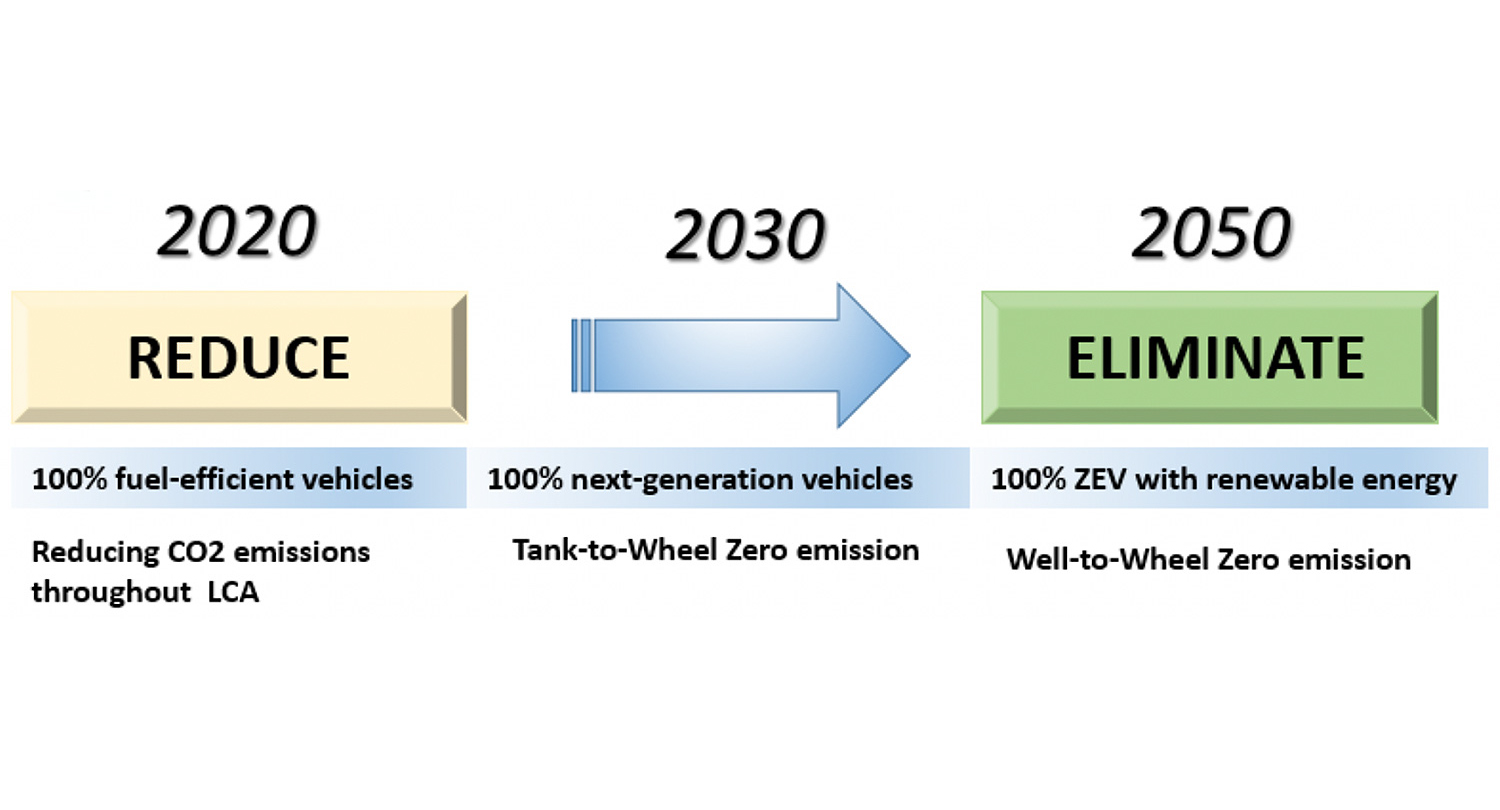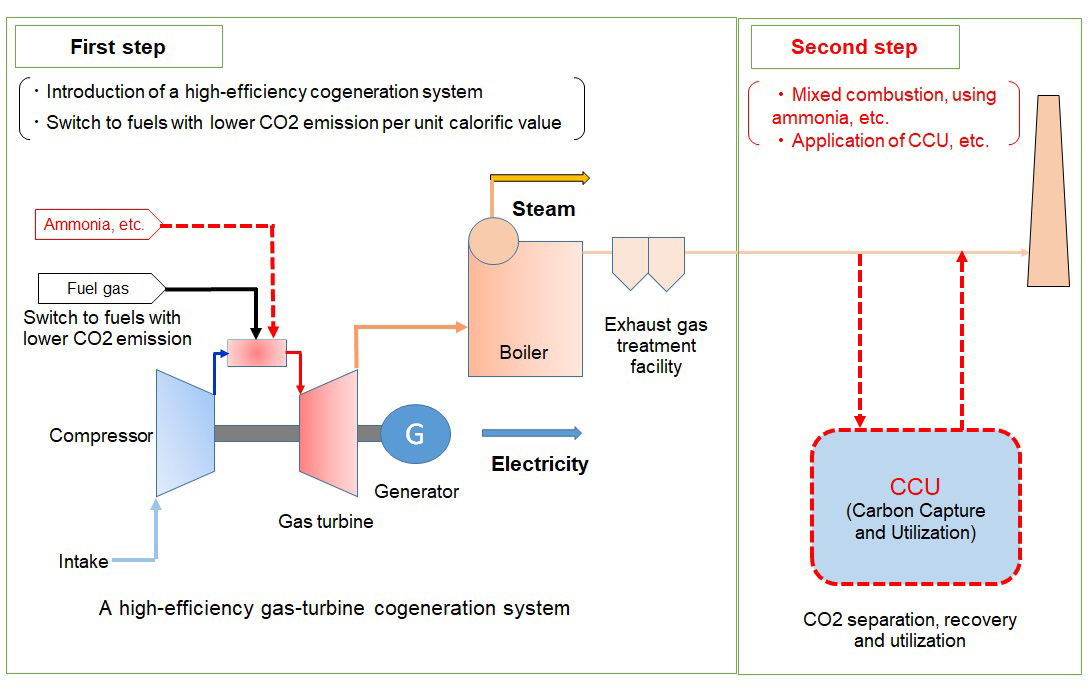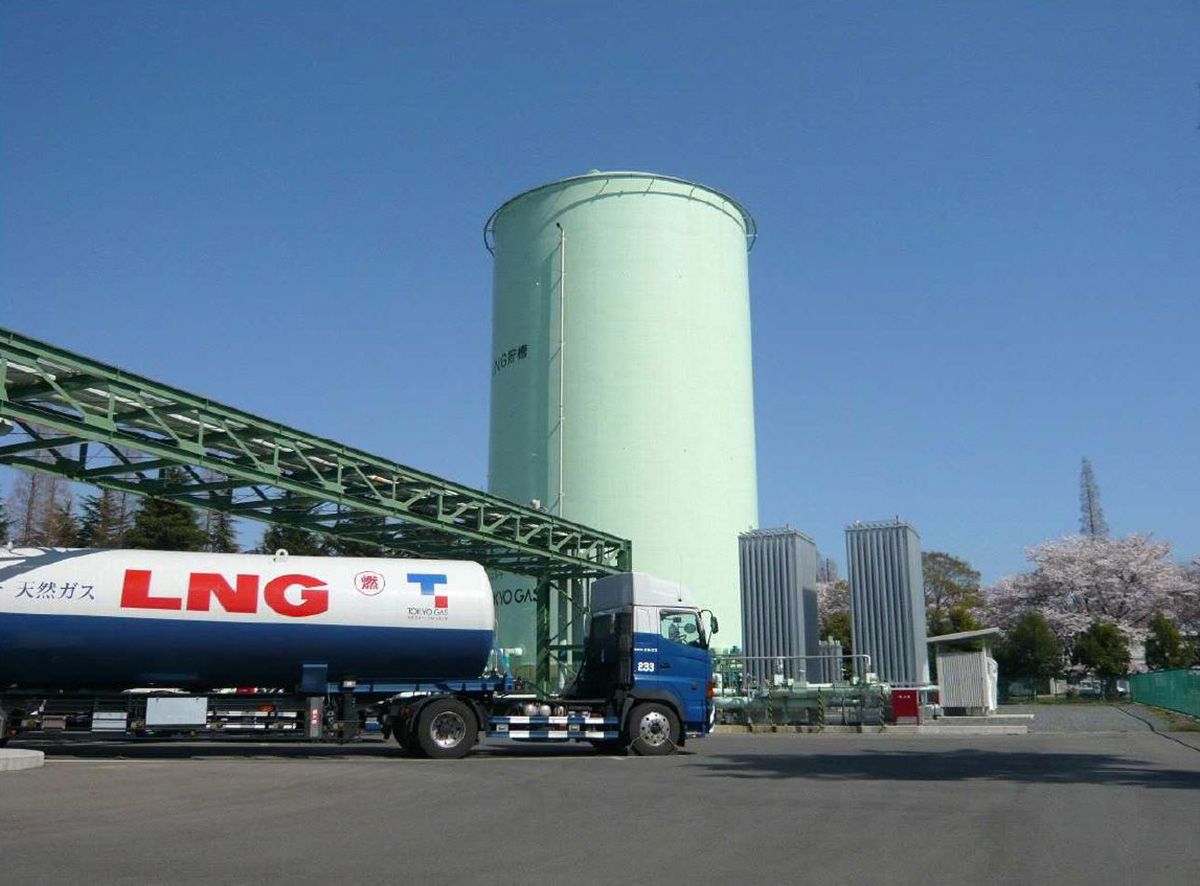Adoption of next-generation biodiesel fuel
SHIMIZU CORPORATION
Outline
Shimizu Corporation was commissioned by Euglena Co., Ltd., and was involved in the construction of the "Next-Generation Biojet Diesel Fuel Production Demonstration Plant" in Tsurumi-ku, Yokohama, convert the microalgae Euglena (Japanese name: Euglena) to fuel. It was completed in October 2018. Shimizu is also a minority shareholder in Euglena Co., LTD.
As of March 2020, the first trial by Euglena Co. is underway. After the start of supply scheduled in April, next-generation biodiesel fuel will be sourced instead of regular diesel oil, and a crawler crane used for large-scale construction work in the Tokyo metropolitan area will operate using the biofuel. There is also a plan to use the biofuel to operate the Shimizu shuttle bus between the headquarters in Kyobashi, Chuo-ku, Tokyo and the Technical Research Institute in Etchujima, Koto-ku, Tokyo.
Description
Our medium- to long-term statement of reducing CO2 emissions, “Ecological Mission 2030-2050” says that we will reduce Scope 1 and 2 emissions by 60% by 2030 and 80% by 2050 compared to 1990.
At present, diesel oil and electric power accounts for the majority of energy consumption in domestic construction work, and the heat equivalent of diesel oil to electricity ratio is 70:30. Considering the CO2 emission rate per heat value and the cost of renewable energy to achieve the medium- to long-term goal, shifting the energy used from diesel oil to renewable electricity is urgently needed. However, despite demand for electric construction machines and vehicles, models that require large torque are not expected to be electrified in the future.
In response, we have decided to use “next-generation biodiesel fuel” derived from the microalgae Euglena as a strategy to reduce the CO2 emissions from diesel oil that will inevitably still be in use in 2050. Algae-derived BDF absorbs CO2 through photosynthesis at the growth stage and contributes to carbon recycling since it uses CO2 as a raw material. We believe that this technology not only reduces CO2 derived from diesel oil but will also contribute significantly to zero challenge when implemented on a large scale in society.
We expect that the introduction of “next-generation biodiesel fuel” from the demonstration stage will also support the expansion to full scale and then large-scaled production plants.
Partner(s)
Euglena Co., Ltd.
Supplementary information
Other Innovation Challenges
Similar Innovation Challenges
Achieve 2050 decarbonization target with Net Zero Energy House!
Sekisui House, Ltd.
Achieving net-zero emissions by promoting renewable energy use through both our monozukuri and products.
DAIWA HOUSE INDUSTRY CO., LTD.








